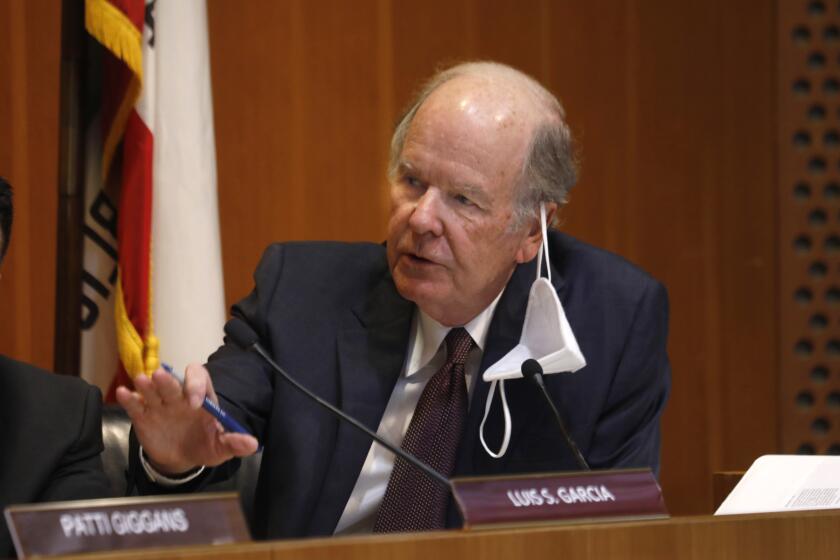Tests Seek to Pinpoint Sources of Water Contaminants
- Share via
Water officials expect to get a better picture in coming months of possible sources of the contaminants in three growing zones of solvent-tainted ground water that have contaminated wells in North Hollywood and Burbank.
After extremely high levels of the solvent perchloroethylene, or PCE, were discovered in soil beneath underground tanks at Lockheed-California Co.’s Burbank plants in 1985, state water officials ordered the aerospace firm to dig 12 test wells around its property to sample ground water.
Lockheed must present its report on the findings by April 10, said Hank Yacoub, supervising engineer for the state-run Los Angeles Regional Water Quality Control Board, which monitors sources of ground-water pollution.
The wells, dug to depths ranging from 900 to 1,200 feet, were designed so that samples could be drawn from various depths, Yacoub said.
“Lockheed did a first-class job on these monitoring wells. If you don’t do a good job it can work against you,” he said.
Depth of Seepage Tested
The tests should provide the first indication of where some of the pollution may have come from, indicate how deep into the earth it has seeped, and help determine if Lockheed is a prime source or just one of many sources of the pollution, Yacoub said.
If responsibility for the pollution can be fixed, then companies will be required to devise and carry out plans to clean up the contaminated water, he said.
Lockheed has pressed the state to check for other possible sources while it is conducting its tests, he said.
“Lockheed attorneys have indicated several times that it’s unfair just to focus on a major industry while a mom-and-pop firm may produce the same problem,” Yacoub said.
In a search for other firms that may have leaked or dumped solvents or other chemicals into the ground, the water board has sent out questionnaires to 700 companies in the North Hollywood-Burbank area, asking for details about the firms’ chemical inventory, disposal procedures and the like, Yacoub said.
On-Site Inspections
When the information is returned, the state will conduct on-site inspections to confirm the reports. If problems are found, companies will be required to test soil or dig wells to check ground water, and may ultimately be asked to contribute to the cleanup, Yacoub said. The only problem Yacoub foresees is that he has only six inspectors in his office to perform these and many other inspections in other parts of Los Angeles.
More to Read
Sign up for Essential California
The most important California stories and recommendations in your inbox every morning.
You may occasionally receive promotional content from the Los Angeles Times.













